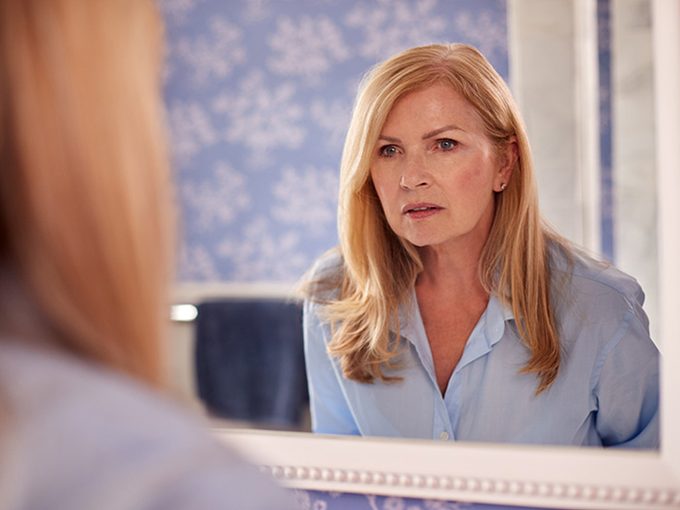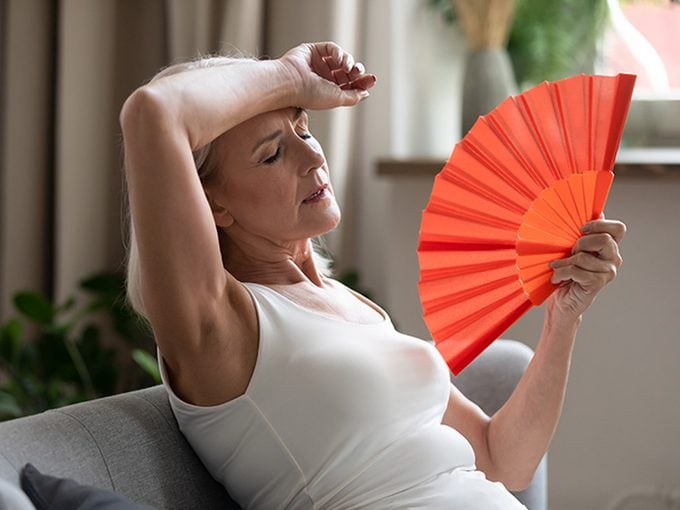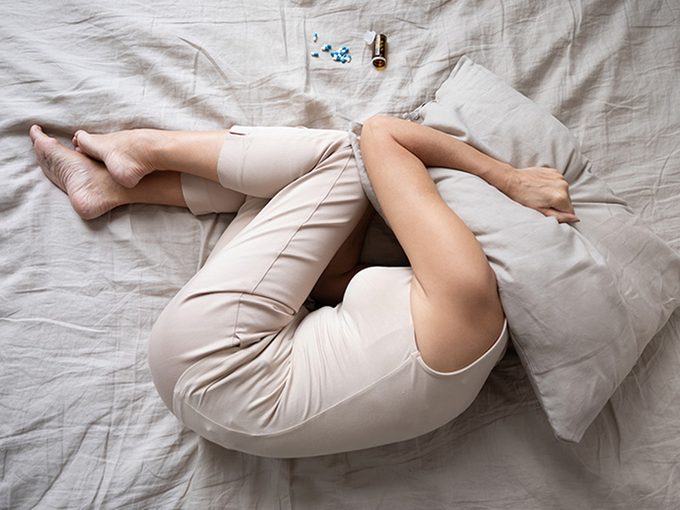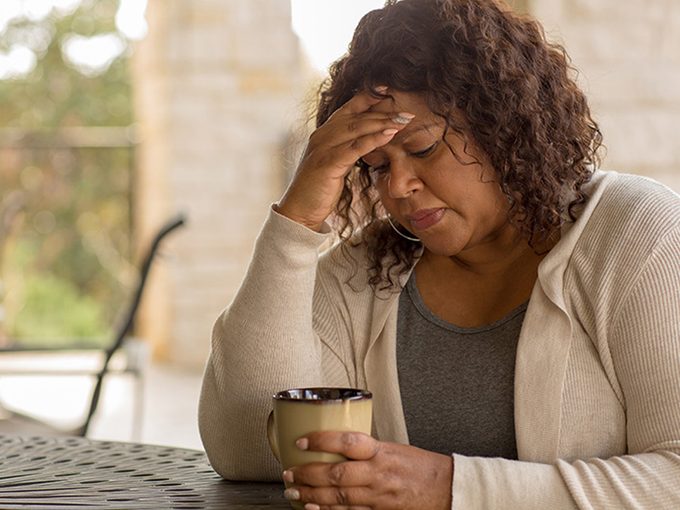The Lesser-Talked-About Side Effect of Menopause
My mom never warned me of this…. A personal essay about peeing yourself.

When menopause hit, I thought I knew what to expect. I had seen my mom go through it. My aunts. My boss. My older friends. The woman I play squash with….
So when the intense hot flashes set in, I wasn’t surprised. I’d seen it before. I remember my mom desperately fumbling for the car’s air conditioning mid-fall and blasting it as if we were in a heat wave. I remember my aunt’s favourite accessory: a bottle of ice water. It’s such a common side effect—75 percent of menopausal women in North America experience hot flashes—that it’s hardly a secret.

Then there’s the brain fog. I forgot to pick up the cake for my daughter’s 16th birthday – a party we’d been planning for months – and flashed back to the day my super-organized mom drove all the way to the cottage without her suitcase. Twice in one summer. She and her sisters would commiserate about lost keys, forgotten names and burned dinners, blaming their “cotton brain.” Indeed, as estrogen levels dip our brain activity follows different patterns, and memory faulters in up to 60 percent of us.
Other symptoms ubiquitously talked about among family, peers and media include: inability to lose weight (hormonal changes slow the metabolism and decrease muscle mass), insomnia (thanks, night sweats), moodiness (the swings from irritability to anxiety, oh my!) and more. And, yes, I had even heard about – and dreaded when it set in – the vaginal dryness (also called vaginal atrophy – yikes!).

But no one ever—not even once in my incredibly open family—mentioned that I might pee my pants. It happened out of the blue, at work, of all places. I bent down to lift a hefty box of files from under my desk and WOOSH! I peed, more than a little, and hid mortified in my cubicle for the remainder of the day.

At first, I brushed it off as an anomaly—until it happened again, this time sharing a laugh at home with my partner. OOP! I hustled to our room, and when I returned, he didn’t even notice I’d changed my pants. Soon, the WOOSHES and OOPS were happening often enough that I had cause for concern, but shame prevented me from asking anyone.
One morning, before anyone else was up, I opened my laptop and switched the browser to private mode. I struggled with what to type into the Google search bar, but eventually landed on the ugly truth: “Why am I suddenly peeing my pants?” Scrolling through the results, a fragment from a Cleveland Clinic article caught my eye: “Urinary incontinence is a loss of bladder control that’s commonly seen in older adults and women who have given birth or gone through menopause.” BINGO. I knew I was menopausal – my period was not there while all the symptoms were…I just didn’t realize incontinence counted among them.
So, I asked my mom. My aunts. My friends. And, yes, even the woman I play squash with, if they had experienced incontinence and, sure enough, most of them had experienced the same WOOSH or OOP that I had. Most stashed incontinence pads where their husbands would see. Though some felt comfortable enough to ask their female doctor about it, no one had mentioned it to anyone else. According to my mom, it was a secret not even shared among sisters.

I’m on a mission to make incontinence less secretive. Would you believe that incontinence, by far, affects more women than men? According to the Mayo Clinic, one in four women—and a whopping 75 percent of women over 65 experience regular incontinence. But the most shocking stat of all was that only 45 percent of women who experience weekly incontinence talk to their doctors about it. Most importantly, it’s not inevitable nor irreversible, and doesn’t have to be embarrassing.
In addition to the wide range of remarkably comfortable protection built exactly for the job – just check out all the options at TENA, an incontinence care brand that is on a mission to fight the stigma around this experience, There is ample advice for living with, and talking about, incontinence. From how to talk to your doctor to exercises that strengthen your pelvic floor to advice on travel and intimacy, there is ample support online.

It’s time to start talking about it. At some point in our life, we all pee a little. Keeping it a secret makes it feel shameful – and I want my daughter to know that WHOOSHES and OOPS are a normal part of womanhood, whatever you call them.





